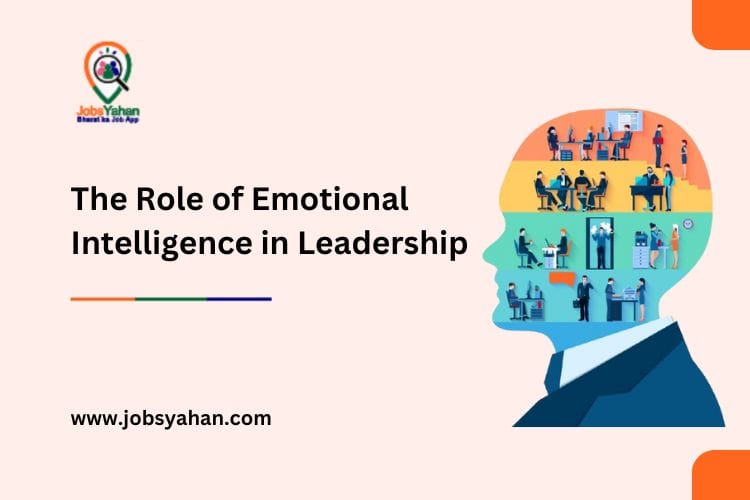
The 21st-century leader is endowed with all the right skills and strategic thinking, but the effective leader understands much more about managing and relating to people. And this is where emotional intelligence (or EI) comes in.
In repeated instances, this emotional quotient (EQ) refers to seeing, understanding, and managing one's own emotions. Second, it refers to the ability to read, influence, and manage the emotions of others. EI, in relation to leadership, becomes an important soft skill but an invaluable one, if I may add. Let's dig a little deeper and see how emotional intelligence is of value and why emotional intelligence counts in the leadership roles of modern organizations.
This is not an exhaustive elucidation. Understanding well leads leaders into welcoming their teams into a healthy environment, a process in communication, and an overall workplace culture of positivity. End the course with an overview of what such emotional intelligence brings to leaders.
The following are the highest rewards of emotional intelligence in leadership:
1. Improved Communication and Teamwork
Leaders with high emotional intelligence are excellent communicators and listeners; they perceive what is not being said and sense an emotional undertone. Depending on audience needs, they adapt their communication. This creates an environment where team members feel acknowledged and appreciated. Healthy cooperation then becomes possible.
2. Better Decision-Making
Emotionally intelligent leaders find their judgment unafflicted by pressures or biases; instead, they weigh facts against emotional fallout ramifications for their decisions. This allows leaders to arrive at more balanced and strategic decisions that cater to both the business aspect and the human factor.
3. Conflict Resolution Skills
Conflict is another reality every workplace has to deal with. Leaders with emotional intelligence resolve conflicts with compassion and fairness. They can detach emotions from decisions in business, thereby alleviating the friction between the parties without damaging relationships. In a way, this trains the parties to handle short-term issues without making them into long-term matters.
4. Improved Employee Engagement and Satisfaction
It gives rise to an inexpungeable kind of loyalty in an employee when he/she is emotionally intelligent and he/she manages the emotional needs of his or her team. Being heard, valued,
and emotionally cared for makes employees stay motivated, productive, and focused on results. High emotional intelligence builds up belongingness and purpose.
5. Voice of Strong Leadership Presence
An emotionally intelligent leader always radiates calm and confident control even in a crisis. They prove to be stress manipulators, possessing the additional capability of responding from the confines of their thoughts instead of reacting impulsively, which later earns them credibility as well as influence. People are more inclined to be led by someone who possesses some level of emotional maturity.
The Importance of Emotional Intelligence in Leadership
This is made because of the impact of emotional intelligence in creating or destroying an individual's or organisation's success. They should be able to handle the growing complexity of the new teams, the increased pace of technological development, and the intensifying environments of work. They must have resilience and agility; EI develops these two.
Emotional Intelligence Builds Trust
Trust is the very foundation of any team working well. Empathizing, being honest, and being real win those leaders trust from their teams. Trust is cultivated into honest interpersonal communication, reduced turnover rates, and closer collaboration. It also helps employees build enough confidence to act and innovate without fearing failure.
Good Emotional Intelligence Yielding Good Team Performance
The leader's emotional intelligence affects change in a ripple effect. The team becomes more emotionally aware, supportive, and responsive. They will better manage stress and respond to feedback, concentrating on group goals, which will lead to better performance overall.
Change Management is Emotional Intelligent
Transformation in an organization creates anxiety and resistance. Emotionally intelligent leaders carry their teams through change by recognizing fear while keeping morale elevated and projecting a definitive vision. Being able to establish an emotional connection within people makes these transitions easier and successful.
Developing Emotional Intelligence in a Leader
An individual normally inspects his or her thoughts, emotions, and behaviours once daily or at least weekly and contemplates over the effects they might have given how they make decisions or relate to other people.
Anonymous feedback from co-workers and seniors or even clients is important. Recognizing how others think of you eliminates the emotional gaps in between. Conscious listening emphasizes the absence of distraction as the listener fully focuses on the speaker without interruption and responds sincerely about the speaker's dilemma. To emulate another person aids in building rapport and developing relations.
Finalize
The first step toward being not just a manager but a leader-centered on clarity, compassion, and confidence-is understanding the importance of emotional intelligence as a skill of leadership. In the ever-changing workplace, making emotional intelligence a priority would help leaders not only resist change but also flourish in times of it.
JobsYahan is an intuitive web- and mobile-based platform designed to streamline the employment process for India's workforce. Tailored specifically for skilled, semi-skilled, and unskilled workers, it offers a vernacular and location-based approach to job searching and recruitment.







